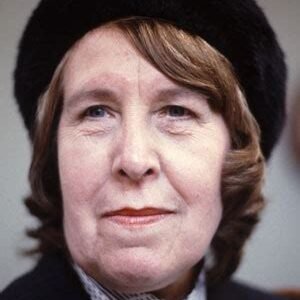For over a thousand years, the British Royal Family has captivated the world’s imagination. From the tumultuous reigns of medieval monarchs to the carefully curated social media presence of modern-day royals, the Windsors (the family’s official surname since 1917) have weathered political upheaval, social change, and constant public scrutiny.
This article delves into the history, evolution, and enduring appeal of this enigmatic institution in the 21st century and beyond.
A Legacy Steeped in History
The roots of the British monarchy stretch back to the Anglo-Saxon kingdoms of the 9th century. William the Conqueror’s 1066 invasion marked a turning point, establishing a centralized monarchy that evolved over centuries. The concept of a “divine right of kings” imbued monarchs with a near-mythical status, wielding absolute power. However, struggles between monarchs and Parliament gradually curtailed their authority, culminating in the establishment of a constitutional monarchy by the 18th century.
Victoria, who ascended the throne in 1837, ushered in a period of relative stability and prosperity known as the Victorian era. Her long reign cemented the image of a benevolent sovereign, a role her successors have strived to maintain. The 20th century saw significant challenges: the two World Wars, the decline of the British Empire, and the rise of democracy. Yet, the monarchy adapted, becoming a symbol of national unity and tradition.
The Modern Monarchy: Navigating a Changing World
Queen Elizabeth II’s reign, the longest in British history, has been a period of immense social transformation. From the dismantling of the Empire to the rise of a globalized media landscape, the monarchy has had to navigate a rapidly changing world.
One key adaptation has been a shift towards a more public, relatable image. The 1969 documentary “Royal Family” offered a glimpse into the Windsors’ private lives, humanizing them for a new generation. Princess Diana’s tragic death in 1997 highlighted the public’s desire for a more empathetic monarchy. In recent years, social media has become another avenue for the royals to connect with the public, offering glimpses of their official duties and personal lives.
The line between tradition and modernity presents a constant challenge. The elaborate pageantry surrounding royal events like coronations and weddings maintains a sense of awe and grandeur. However, the royals must also appear accessible and relevant to maintain broad public support.
The Future of the Crown: Challenges and Opportunities
The question of the monarchy’s future remains a topic of debate. Critics argue that a hereditary system is outdated and expensive, questioning the relevance of a royal family in a modern democracy. Republican sentiment, though a minority viewpoint, exists within the UK and in former colonies.
Yet, the monarchy retains considerable support. Polls consistently show a majority of Britons favor retaining the institution. The royals’ dedication to public service, their role in promoting tourism and British culture globally, and their ability to provide a sense of national unity are all contributing factors.
The future of the Crown likely lies in continued adaptation. Prince Charles, the heir apparent, has championed environmental and social causes, demonstrating a willingness to engage with contemporary issues. Prince William and Kate Middleton have cultivated a positive image, focusing on mental health awareness and early childhood development.
The monarchy’s success in the future will depend on its ability to maintain a balance between tradition and progress. It must remain relevant and responsive to public concerns while retaining its historical and cultural significance.
Beyond the UK: The Royal Family on the Global Stage
The British Royal Family’s influence extends beyond the UK’s borders. The Commonwealth of Nations, a voluntary association of 54 former British colonies, includes 15 realms where the British monarch is the head of state. The royals play a crucial role in maintaining ties with these countries.
Furthermore, the global media’s fascination with the British royals ensures their image is projected worldwide. Royal tours, weddings, and scandals dominate headlines, generating a level of interest unparalleled by most other heads of state.
This global recognition offers opportunities for the royals to promote positive causes and champion international cooperation. Their actions can inspire positive change and strengthen diplomatic ties between nations.
FAQs
What is the British Royal Family’s historical background?
The roots go back to the Anglo-Saxon kingdoms of the 9th century. William the Conqueror’s 1066 invasion established a centralized monarchy. Initially, monarchs held absolute power, but by the 18th century, a constitutional monarchy emerged, with Parliament holding significant authority. Queen Victoria’s long reign (1837-1901) became a symbol of national stability, while the 20th century saw the monarchy adapt to challenges like World Wars and decolonization.
Who is the current monarch, and how long have they reigned?
Queen Elizabeth II ascended the throne in 1952, making her the longest-reigning British monarch in history. She is the Head of State of the United Kingdom and 14 other Commonwealth realms.
Who are the next in line to the throne?
The line of succession is clear-cut. Prince Charles, the Queen’s eldest son, is the heir apparent. He is followed by his eldest son, Prince William, Duke of Cambridge, and then William’s children (Prince George, Princess Charlotte, and Prince Louis) in order of birth.
What are the roles and responsibilities of the Royal Family?
The king represents stability and national cohesion. They undertake various official duties like opening Parliament, representing the UK on state visits, and supporting charities and organizations. Other members of the “working royals” carry out similar public engagements.
What is the difference between working and non-working royals?
Working royals are those actively undertaking official duties on behalf of the monarch. They receive public funding to support their work. Non-working royals have titles but no official duties and are not financially supported by the public purse.
The British Royal Family is a long-standing and intricate organization. It has weathered centuries of change, adapting to remain relevant in the face of political upheaval, social transformation, and a globalized media landscape.
The future of the Crown is uncertain but holds opportunities. By embracing change while cherishing its traditions, the Royal Family can continue to serve as a symbol of unity and a source of national pride, not just in the UK but on the global stage.
To read more, Click here





